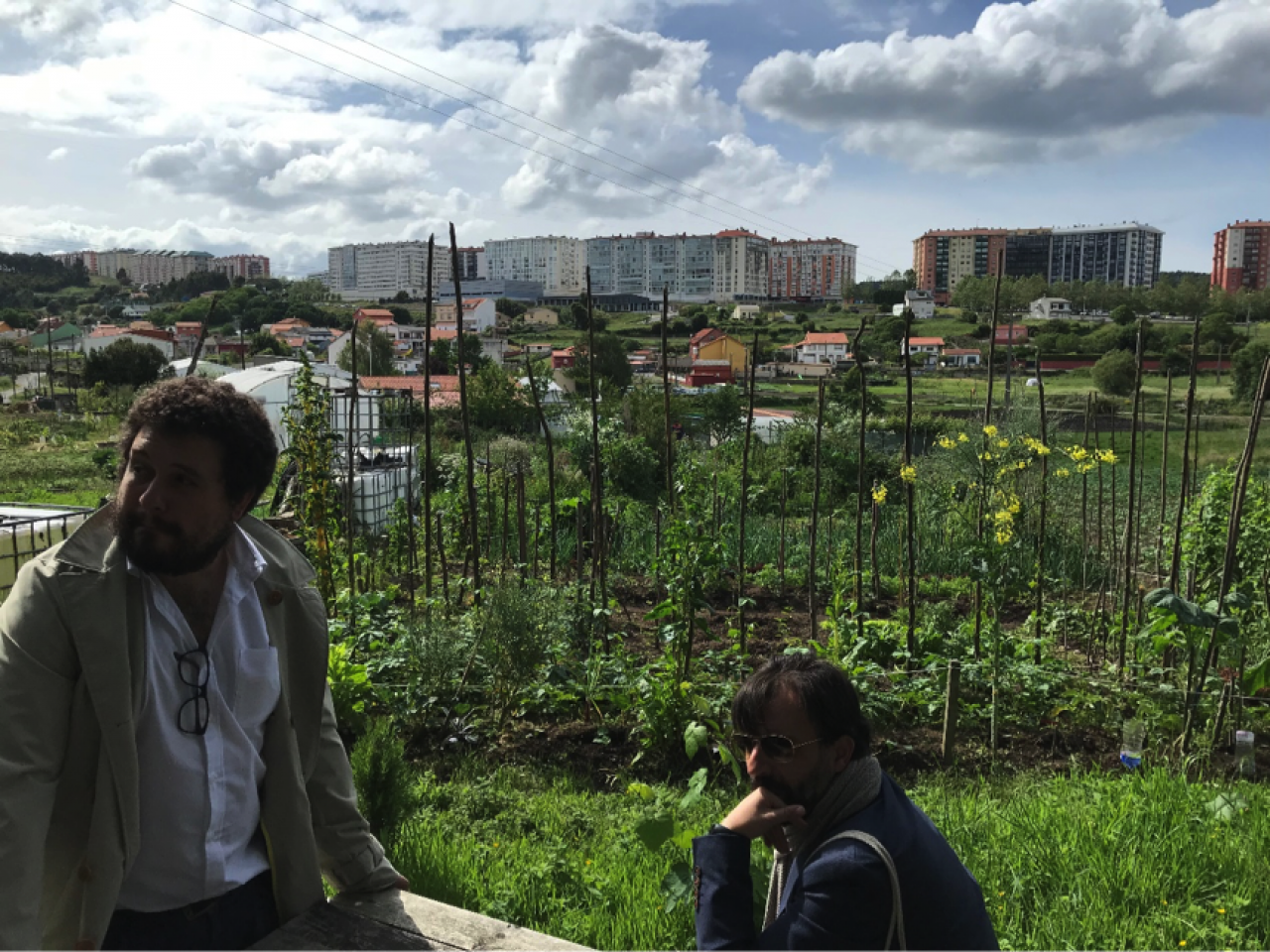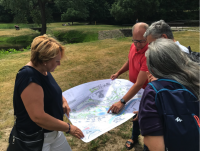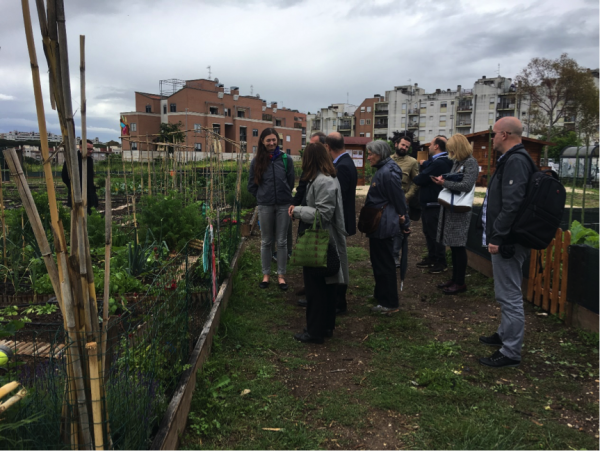
From Rome (IT) to Vilnius (LT) and A coruna (ES), Urban Gardening plays a key role in creating social links and is at the forefront of social innovation.
Urban Gardening is a now widespread concept. That is how Wikipedia proposes to define it: "Urban gardening is the practice of cultivating, processing and distributing food in or around a town, or city. The concepts in Urban Gardens and the associated facilities have received significant attention and popularity in the last 10 years and are growing to meet the needs of the ever-developing urban life."
But what happens in real life in European cities and towns? How can one build and manage urban gardens? Are Urban Gardens just about gardening in public or private plots, or are they creating something else, that one could call real community hubs?
Implementing successful actions that result in improved citizens’ quality of life, actions that are also supported by local authorities, is both a target and a great challenge for modern cities and societies.
During the last decade intra - and peri – urban agriculture expanded rapidly. It went beyond the initiative of self-organized citizens or associations. Urban and peri-urban gardens are becoming a promising trend in some cities & towns all over Europe.
Benefits of Urban Gardening
Urban gardening and agriculture plays an important role in enhancing urban food security. Urban agriculture contributes to local economic development, poverty alleviation and social inclusion of the urban poor, as well as to the greening of the city. The importance of urban agriculture is increasingly being recognized by international organisations like UN-Habitat & FAO (World Food and Agriculture Organization).

Rome (IT) has been awarded the URBACT Good Practice label for its participatory urban gardening project. The city has a long tradition of urban gardens but the novelty is that the City Council of Rome recently approved a regulation for Urban Gardens. Urban Gardens are now on expected to fulfil social, environmental and cultural goals for the inhabitants following clear steps for their establishment, but also their management.
Ru:rban: Transferring the Urban Gardening Good Practice
The Ru:rban project is one of the 24 new “Transfer Networks”. It focusses on the aspect of urban gardening, transferring knowledge and valuable experiences from the lead partner to the other participating cities and backwards. Urban gardening is a tool to include disadvantaged people (including refugees), to encourage citizens to reconnect with nature, notably if it involves schools, the young and the elderly. In terms of social inclusion, urban gardening also helps reduce the risk of mental health diseases, promote a 
Ru:rban Transfer Network is an opportunity to make urban agriculture a valued and essential element of policy in favor of green urban infrastructures.
The cities involved in the network (Rome, A Coruna, Vilnius, Thessaloniki, Krakow, Caen and Loures) will exchange on methodologies in order to improve the impact of their urban gardening practices focusing on the policy topic management. The project will involve a wide range of stakeholders that have a strong relation with the existing gardens in each city, but also people responsible for the management of city gardens on behalf of the cities.
The targets set for the network are to enrich Rome urban gardens regulation with new ideas, to transfer this updated regulation to the other cities, to assist these cities in improving their urban garden practices, to train in a vocational way people to manage urban gardens (Gardenisers) as parts of a small scale action plan for each city that will be prepared early 2019. The small scale actions plans will aim at increasing inhabitants’ interest, in order for them to be involved for the first time in urban garden projects and make of these places interesting community hubs.

3 different views and practices of urban gardening from 3 cities visited so far within Ru:rban.
While comparing the cities experiences, different approaches appeared. The first community Urban garden in Rome was implemented in 2009: Orti Urbani Garbatella. Today more than 200 community-run green areas are mapped. A regulation for the Assignment and Management of Municipal Green areas and Allotments was approved by the COR in July 2015. According to this Regulation, community gardens are considered as agricultural activities places, public spaces, green areas and community associations, all at the same time. They must conform to the prescriptions that each of these domains imply. Consequently, they are expected to fulfil social, environmental and cultural goals.
The city of A Coruna uses its own budget and human recourses to fund the urban gardens infrastructures and organisation. This self-government policy challenge is a core element of the city action plan.
Vilnius has a long history of urban gardening. They were mostly created by the institutions. There are very few examples of community based gardening actitivities but the potential is huge due to the amount of green public and private spaces avaialble in the city.
Identifying common challenges beyond each city’s expectations Each of the city visited by the partnership so far has expressed its own expectations as regards to the network:
- Rome would like to learn from the other cities in order to improve its existing regulation.
- A Coruna would like to transfer elements of the good practice about management of urban gardens and would like to understand how to access funding to support of this specific policy challenge.
- Vilnius would like to design a model for the continuous growth and expansion of community led gardens in the city; one that is sustainable and beneficial to everyone, notably by engaging public and private stakeholders. Vilnius would also like to review - and if necessary revise – the functioning of the municipal company in charge of public parks (Vilniaus Parkai) for it to focus more on community gardening.
- There is also a critical common challenge for all cities participating to the the network: to improve their governance effectiveness in managing urban gardens through an improved city regulation.
Through the Ru:rban project, the partners want to meet those objectives, notably by exchanging on the existing knowledge and practices that exist today in Europe.
They wa
But above all these objectives there is also a very ambitious goal: that of inspiring new people to involve in community gardening and to make of urban gardens modern community hubs, in which people meet daily and act together with other people.

